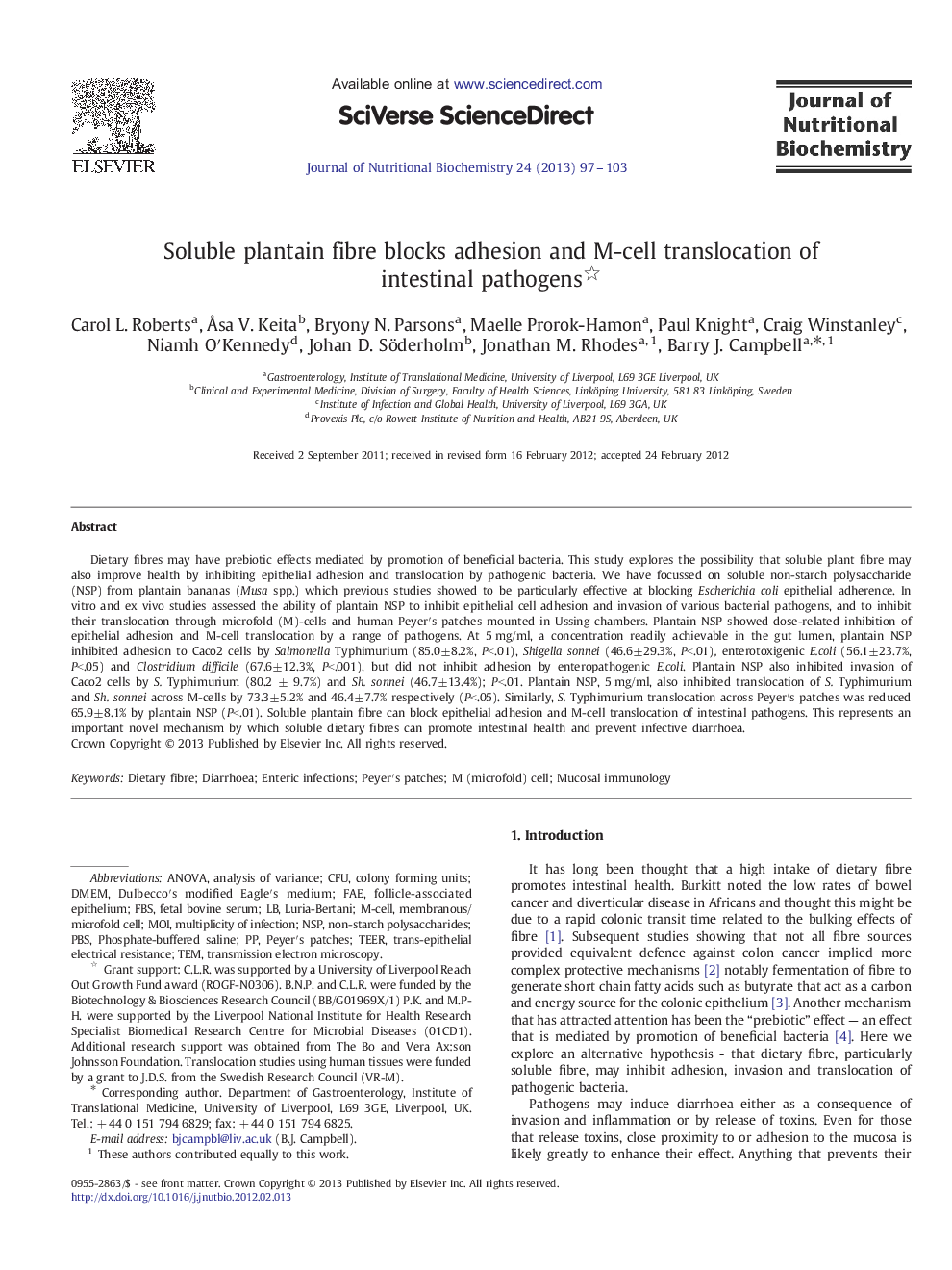| Article ID | Journal | Published Year | Pages | File Type |
|---|---|---|---|---|
| 8337504 | The Journal of Nutritional Biochemistry | 2013 | 7 Pages |
Abstract
Dietary fibres may have prebiotic effects mediated by promotion of beneficial bacteria. This study explores the possibility that soluble plant fibre may also improve health by inhibiting epithelial adhesion and translocation by pathogenic bacteria. We have focussed on soluble non-starch polysaccharide (NSP) from plantain bananas (Musa spp.) which previous studies showed to be particularly effective at blocking Escherichia coli epithelial adherence. In vitro and ex vivo studies assessed the ability of plantain NSP to inhibit epithelial cell adhesion and invasion of various bacterial pathogens, and to inhibit their translocation through microfold (M)-cells and human Peyerâ²s patches mounted in Ussing chambers. Plantain NSP showed dose-related inhibition of epithelial adhesion and M-cell translocation by a range of pathogens. At 5 mg/ml, a concentration readily achievable in the gut lumen, plantain NSP inhibited adhesion to Caco2 cells by Salmonella Typhimurium (85.0±8.2%, P<.01), Shigella sonnei (46.6±29.3%, P<.01), enterotoxigenic E.coli (56.1±23.7%, P<.05) and Clostridium difficile (67.6±12.3%, P<.001), but did not inhibit adhesion by enteropathogenic E.coli. Plantain NSP also inhibited invasion of Caco2 cells by S. Typhimurium (80.2 ± 9.7%) and Sh. sonnei (46.7±13.4%); P<.01. Plantain NSP, 5 mg/ml, also inhibited translocation of S. Typhimurium and Sh. sonnei across M-cells by 73.3±5.2% and 46.4±7.7% respectively (P<.05). Similarly, S. Typhimurium translocation across Peyerâ²s patches was reduced 65.9±8.1% by plantain NSP (P<.01). Soluble plantain fibre can block epithelial adhesion and M-cell translocation of intestinal pathogens. This represents an important novel mechanism by which soluble dietary fibres can promote intestinal health and prevent infective diarrhoea.
Keywords
Related Topics
Life Sciences
Biochemistry, Genetics and Molecular Biology
Biochemistry
Authors
Carol L. Roberts, Ã
sa V. Keita, Bryony N. Parsons, Maelle Prorok-Hamon, Paul Knight, Craig Winstanley, Niamh Oâ²Kennedy, Johan D. Söderholm, Jonathan M. Rhodes, Barry J. Campbell,
